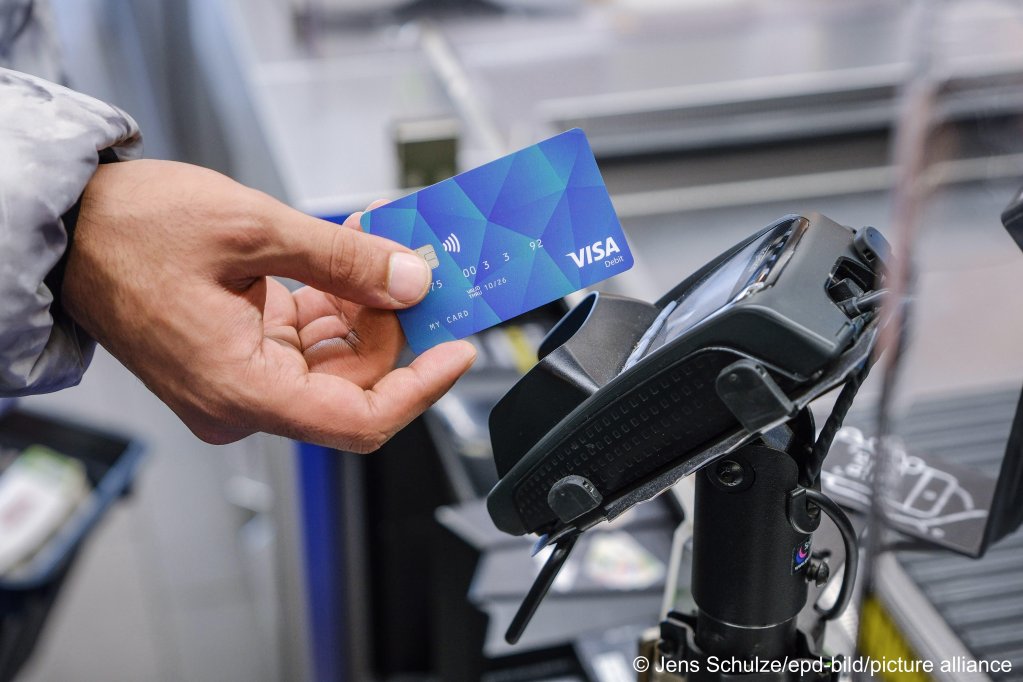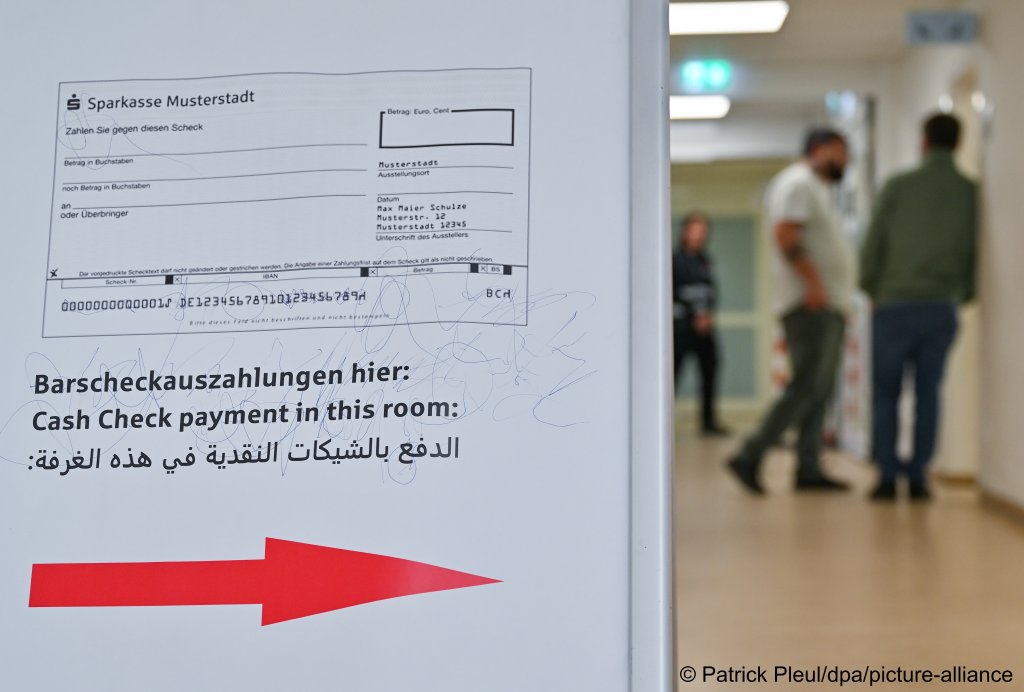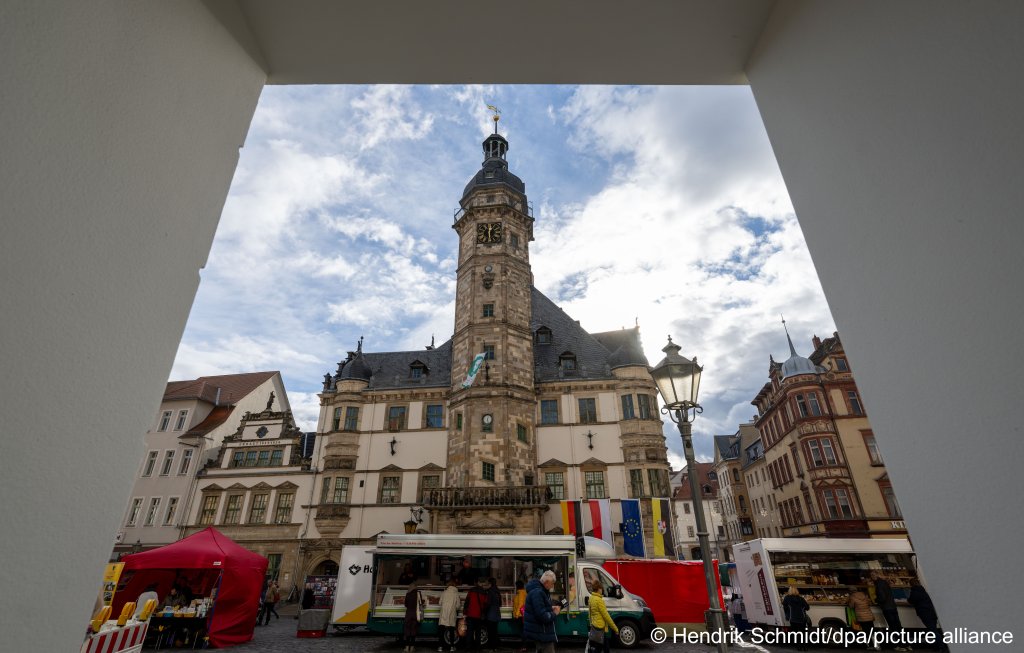The payment card for asylum seekers is meant to streamline the distribution of benefits. But recipients in Hamburg and a small city in Thuringia say they make their daily lives harder.
"Can I pay with the SocialCard?," Munir Safi, a 31-year-old Syrian asylum seeker, asks in English inside a Turkish cell phone store in the south of Hamburg, a blue-green Visa card in hand.
"Only cash," the employee replies, adding that there is an ATM in the shopping center next door, as reported by news agency KNA,
Safi, who arrived in Germany at the beginning of the year, says the card works well in supermarket and drugstore chains, pharmacies and larger restaurants. "But these are not the stores where I mainly shop as a refugee."
In February, Hamburg was the first of Germany's 16 federal states to introduce a payment card for asylum seekers across the board. The 'SocialCard', as it's called in the city state, is a Visa credit card that works without an account.
So far, around 1,600 cards have been issued to new arrivals in initial reception facilities in Germany's second-largest city, reports KNA.
Safi tends to try to focus on inexpensive stores like cell phone stores, small fruit and vegetable vendors or snack bars that offer specialties from his home country that usually don't accept card payments. Some demand a minimum purchase value of 20 or 30 euros, he says.
185 euros per month, 50 of which in cash
Each month, Hamburg's immigration office transfers 185 euros to each 'SocialCard', according to KNA. Users can withdraw 50 euros of that amount in cash at ATMs or at supermarkets.
For Safi, the 50-euro limit means paying in cash is often not an alternative. Many ATMs charging a fee of two to three euros for withdrawals adds to this problem, he says.
Malika Haidari, a 26-year-old Afghan who received Hamburg's card in April, reports similar experiences and considers the card to be stigmatizing, according to KNA. "People look at you funny when you try to pay with the card," she says.
The initiative 'Hamburg says no to the SocialCard', a loose association of individuals and refugee aid organizations, claims that the payment card is discriminatory and hostile to integration.

Two NGOs, the Society for Civil Liberties and Pro Asyl, are currently providing legal advice to two affected persons in Hamburg who are taking legal action against the payment card. A spokeswomen for the Society for Civil Liberties told InfoMigrants that one of them is a pregnant woman who is unable to enroll in a gym or in a sports club because she lacks a bank account, which is out of reach with a payment card.
Human rights activists are moreover preparing legal action in other federal states, KNA reports.
In contrast, Hamburg's state government, the Senate, claims that the acceptance of the users of the 'SocialCard' is good, according to KNA.
"They are relieved that they have something in their hands straight away and don't have to go to another place, a district office, wait and only then receive money," a spokesperson for the social welfare authority said, adding that this would also relieve the burden on the administration. According to KNA, authorities in Hamburg have so far received eleven complaints that tend to be of a technical nature.
Munir Safi would like to see a free bank account in addition to the card. "That would offer more freedom."
How do the payment cards work?
Payment cards (Bezahlkarten in German) look like debit/credit cards on which most (but not all) of their state benefits are booked once a month.
Asylum seekers don't have residency status in Germany and thus cannot have their own bank account nor work legally for at least the first months in the country.
Local authorities have hitherto paid asylum seekers a monthly state benefit of around 400-500 euros -- either in cash or in vouchers.
Asylum seekers can use the Bezahlkarte in any shop where normal credit cards are accepted, which in Germany excludes many small businesses. They may however be restricted to certain postcodes. What's more, they cannot be used to make online payments.
In late June, the leaders of Germany's 16 states agreed to limit cash payments to asylum seekers to 50 euros per month, although three states say the amount was problematic.
Payment cards with similar settings are to be introduced in all federal states this year.

130 euros in cash in Altenburg
When compared to Hamburg, the city of Altenburg in the state of Thuringia is tiny. Back in April, the city of some 30,000, located roughly in the middle between the major cities of Dresden and Erfurt, Thuringia's capital, was one of the first cities in Germany to roll out the card.
Here, asylum seekers can take out 130 euros in cash, 55 euros more than in Hamburg, despite (living) expenses being considerably lower in Altenburg. However, asylum seekers are only allowed to use it within the borders of the region of Altenburg, which gives them significantly fewer options compared to Hamburg.
The rules around the payment card are somewhat piecemeal in the state of Thuringia. As a matter of fact, each district deals with it differently according to two representatives of migrant organizations InfoMigrants spoke to last month. They say that some districts only allow asylum seekers to take out 50 euros in cash, others, like Altenburg, allow for a lot more.
Atef Okari from ABLI and Abdulkader Haj Ahmad from Violass say that not being able to wire money with the card makes it very hard to pay for things like fees, for instance when riding the bus without a ticket, or a dentist bill. "We may need to pay cash for these sorts of things, which can be difficult if we already need the cash to pay for things like cigarettes," they told InfoMigrants.

However, Okari and Ahmad think users will find ways to get around the restrictions through the "black market". If someone smokes cigarettes and drinks alcohol -- two things that can't be paid for with the payment card -- and has already given out all their cash for the month, they may offer to buy someone's groceries with their Bezahlkarte in exchange for cash, Okari explains.
Okari and Ahmad agree the idea of the card isn't necessarily bad. But they say that because of the cash restrictions and the fact people can't wire money with it, it is being used as a discrimination device.
At the same time, they admit it is hard to tell what sort of impact the card has had so far given that fewer than 100 people have received the card in Altenburg up till now.
Expectations vs reality
The payment cards are designed to prevent money transfers abroad and discourage paying criminal traffickers, while also streamlining the distribution of benefits and reducing the administrative burden on local authorities. However, experts and migrant advocacy groups criticize the cards as discriminatory, particularly in a country that remains heavily cash-based.
The police union also warned against the payment card months ago. Asylum seekers are often under pressure to help cover the medical costs of their families in their country of origin or to pay off debts to smugglers. This could lead to them obtaining the money illegally, the union warned.
Herbert Brücker, a senior researcher at the Institute for Employment Research, anticipates the system to result in indirect costs. "The payment card restricts mobility and therefore also integration: Job hunting would be more difficult, asylum seekers would be cut off from certain goods and services," he told tagesschau.de in April.
with KNA
Clare Roth contributed to the reporting.
